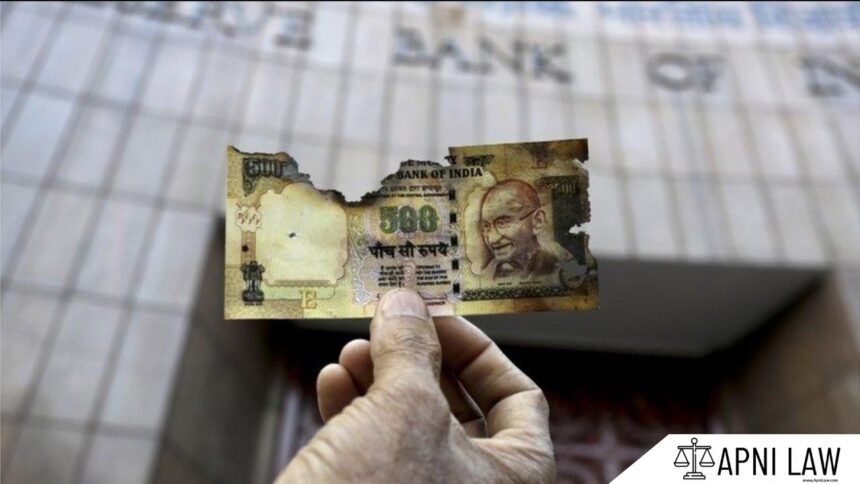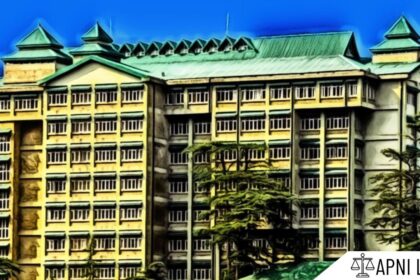This article is written by Atishay Jain, a former UPSC aspirant and a key member of the ApniLaw team, combining his knowledge of the Constitution with a strong interest in public law. For any personal queries or suggestions, feel free to reach out to us through our official channel
Introduction: Can the Government Really Cut Everyone’s Salaries?
Imagine waking up to news that the central government has ordered pay cuts for all government officials—including judges. What if your state is told to halt its budget plans and get New Delhi’s approval first?
Sounds extreme? That’s what a Financial Emergency under Article 360 of the Indian Constitution allows.
Let’s break it down—how it works, when it can be declared, and why it’s never been used (yet).
What Is a Financial Emergency?
Under Article 360, the President of India can proclaim a Financial Emergency if the financial stability or credit of India—or any part of it—is under threat.
This is the Constitution’s way of saying: “If things go really bad financially, we have a plan to take control and fix it.”
But who decides when that happens? And can we trust that decision?
Is the President’s Decision Final?
Initially, the 38th Amendment (1975) said that the President’s satisfaction couldn’t be questioned. But later, the 44th Amendment (1978) reversed this, making the decision subject to judicial review.
So yes, if the government misuses this power, courts can step in.
How Is a Financial Emergency Declared?
Here’s how the process works:
- The President issues a proclamation.
- Within 2 months, both the Lok Sabha and Rajya Sabha must approve it.
- If the Lok Sabha is dissolved, the approval can wait until 30 days after its reconstitution, provided the Rajya Sabha has already said yes.
No Expiry Date? That’s Right.
- Once approved, the Financial Emergency continues indefinitely—there’s no 6-month renewal rule like in other emergencies.
- It can be revoked anytime by the President, and this doesn’t require Parliament’s approval.
Type of Approval Needed:
- Just a simple majority in each House is requried.
What Happens During a Financial Emergency?
If a Financial Emergency is in place, here’s what changes:
1. The Centre Can Tell States What to Do Financially
- States must follow the Centre’s instructions on financial propriety.
- This could include getting central approval for:
- How money is spent.
- How budgets are passed.
2. Pay Cuts Become Legal
- The President can direct salary reductions for:
- Central and State government employees.
- Judges of the Supreme Court and High Courts.
This is probably the only situation where even judges’ pay is not protected.
Real-Life Example: The Crisis of 1991
India hasn’t declared a Financial Emergency yet. But it came close in 1991.
What went wrong?
- Foreign exchange reserves were critically low—barely enough for a few weeks of imports.
- India had to pledge its gold reserves to secure emergency loans from abroad.
- The government chose economic reforms and liberalization instead of invoking Article 360.
Why didn’t they use the Emergency?
Perhaps because of the sweeping control it gives the Centre, or the political fallout of reducing salaries nationwide.
Did the Constitution Makers Think It Was Necessary?
Yes, Dr. B.R. Ambedkar said the idea was inspired by the U.S. National Recovery Act of 1933, used during the Great Depression.
But not everyone agreed. H.N. Kunzru, a member of the Constituent Assembly, warned it could damage the financial autonomy of states.
Their debate continues to be relevant even today.
Key Takeaways
- Article 360 empowers the President to act during financial crises.
- Once declared, a Financial Emergency can continue without any time limit.
- Parliamentary approval is required, but just once.
- It gives the Union government financial control over states and allows salary reductions at every level.
- It has never been used, but the 1991 crisis came close.
Why Should You Care?
If you’re a lawyer, law student, policymaker, or simply a citizen who follows governance—this is your constitutional toolkit for understanding how India plans for economic disasters.
In a country as diverse and complex as India, the balance between financial control and federal freedom is delicate. Knowing where those lines are drawn helps us all stay informed, empowered, and watchful.








